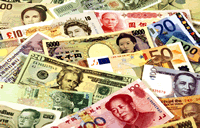Dorling Kindersley Limited
The Penguin Group
Published by the Dorling Kindersley Limited,
80 Strand, London WC2R 0RL
LONDON, NEW YORK,
MUNICH, MELBOURNE, DELHI
Dorling Kindersley Limited, Registered Offices: 80 Strand,
London WC2R 0RL, England
www.dk.com
First Published in paperback in 2008 by Dorling Kindersley Limited. ISBN: 9780756637071
Copyright 2008 Dorling Kindersley
Text Copyright 2008 Jihong Sanderson
This Digital Edition published 2010. ISBN: 9780756666941
Digital conversion by DK Digital Content, London and DK Digital Media, Delhi.
No part of this publication may be reproduced, stored in a retrieval system,
or transmitted in any form or by any means, electronic, mechanical, photocopying, recording, or otherwise, without the prior written permission of the copyright owner.
Introduction
Chinaone of the worlds largest and fastest-growing marketshas been called the business opportunity of this generation. But business in China is unlike business in any other countryChina is different. Understanding how Chinese history, culture, and business practices affect China-related ventures is essential if you are to maximize the opportunities and avoid unpleasant and costly pitfalls.
This concise guide provides you with the comprehensive yet practical information required as a foundation for your success in China. It provides the inside knowledge of Chinese business culture that you need to find and take advantage of the opportunities in China-related enterprise: how to entertain Chinese clients, how to negotiate a workable Chinese contract, and how to effectively manage Chinese colleagues, suppliers, and employees.
Doing Business in China tells you all you need to know about how to get things done in China, from navigating local bureaucracy to risk management. When a reporter asked Larry Ellison, CEO of Oracle Corporation, what was the biggest risk of doing business in China, he answered, The biggest risk is not investing in China. That is a mistake we are not going to make. For those firms prepared to approach this market with care and understanding, the potential rewards are huge.
What is China like today, and why is it unique? Large-scale development and market growth is apparent almost everywhere, and foreign companies have an unprecedented opportunity to share in that growth. However, the history, politics, economy, and current trends of this vast country explain why business there requires a different approach.
Many Chinas, Rapid Change
With its mutually unintelligible dialects, powerful local governmentswith their border checkpoints between some cities and provincesChina can seem more like a loose alliance of states than one country. But all of the different Chinas share one characteristic: large-scale, very rapid change.
Changing goals
China is part way through a transition of goals, from idealistic to practical. In 1949 Mao Zedong united the Chinese people with a vision of a utopian society without poverty, hunger, violence, or inequality. In 1978, however, Chinas then leader, Deng Xiaopeng, redirected China on a search for practical solutions to national problems: It doesnt matter if the cat is black or white, as long as it catches the mouse. Chinas goals today are a mix of the idealistic and the practical, so Western business contacts need to understand and be sensitive to both aspects.
Demographic change
China is constantly reinventing itself. The current model of this evolving society seeks prosperity, an excellent education for the one child in each family, an environment with clean water, air, and soil, and better lives for its poorest citizens. Meanwhile, Chinas new middle class of business people, scientists, teachers, and technicians is now estimated to number about 250 million people, all seeking consumablesfrom property, cars, and vacations, to financial services.
The new market economy
Business survival in China in the past depended on official policy, rather than market considerations; managed centrally from Beijing, each business adopted the products, output level, and pricing, as well as the suppliers and customers, that government planners specified. Customer satisfaction, market share, and profitability have only begun to exert an influence in the past generation and, as with Chinas legal system, the market economy is still a work in progress. Harmonizing with government policy and recruiting powerful sponsors for business projects is still vital to success.

Rule by law
Like the cities of China, Chinese law is mostly new. In 1949, China abolished its existing laws, replacing them with a set of general principles applied by the political leadership. Almost all of the approximately 2,500 lawyers and judges practicing after 1949 were sent to re-education labor camps during the Cultural Revolution (196676).
By the late 1970s when China began to open up, there was little or no legal system. The period since 1978 has seen a rapid transition from rule by powerful individuals toward rule by law. The task is not yet complete, but today China has over 118,000 lawyers presenting 5 million cases annually before more than 190,000 judges.
 Be prepared
Be preparedThose who visited China before 2000 are likely to be most impressed by the transformation in its urban landscapes and infrastructure. However, never decline invitations to visit and admire scenic and historic siteseven if you have seen them beforeas these remain an ongoing source of intense national pride.
Country Profile
China is a land and people on a massive scale. It has a land area similar to that of the US, yet more than four times the population. It is estimated that there are more people studying English in China than there are native English-speakers in the world.
Capital/largest city: Beijing/Shanghai
Population: 1.321 billion (2007)
Official languages: 1 written (Mandarin), 10 major spoken languages
GDP/GDP per capita: US$3.43 trillion (2007)/US$2,594 (based on exchange rate) or US$7,800 PPP
Currency: I yuan () or renminbi (RMB) = 10 jiao = 100 fen
Time zone: All of mainland China observes Beijing Time: UTC +8
Dialing code: +
Principal business areas: Shenzhen/Hong Kong, Shanghai, Beijing
*PPPPurchasing Power Parity; many common goods and services can cost 50 percent to 75 percent less in China, compared with Europe or the US, after converting into local currency. This complicates calculations for both GDP and wages.
The Chinese miracle
Chinas population includes 700 million people in rural areas who mostly struggle to make a living from small plots of land, as well as 400 million who travel via expressways, subways, and wide boulevards to their work in ultra-modern offices, shopping malls, and factories. With a literacy rate exceeding 90 percent and an excellent work ethic, the latter produce much of the worlds clothing, toys, and household and electronic goods. Chinas GDP has had a growth rate averaging 10 percent annually for the last 25 years, and this astonishing economic growth has resulted in what is termed the Chinese miraclethe lifting out of desperate poverty of more than 100 million people.

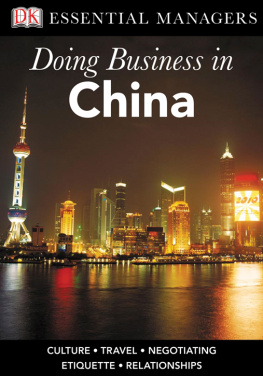


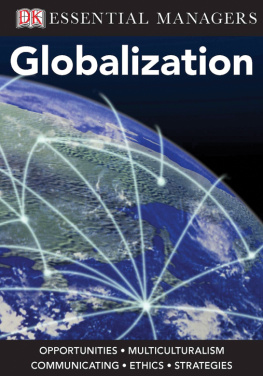

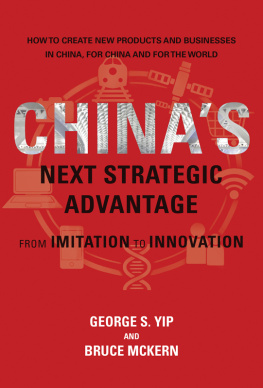
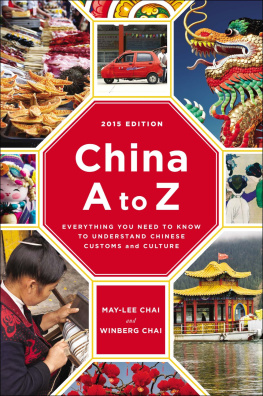
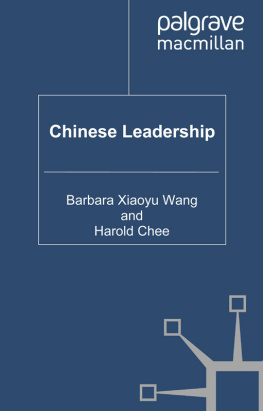
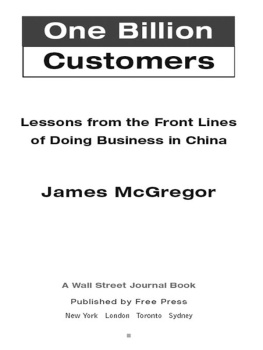
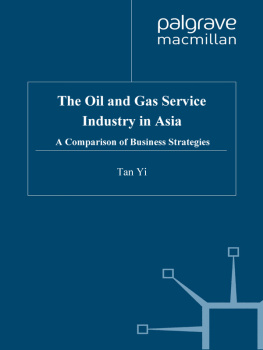

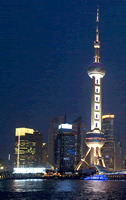
 Rule by law
Rule by law Be prepared
Be prepared